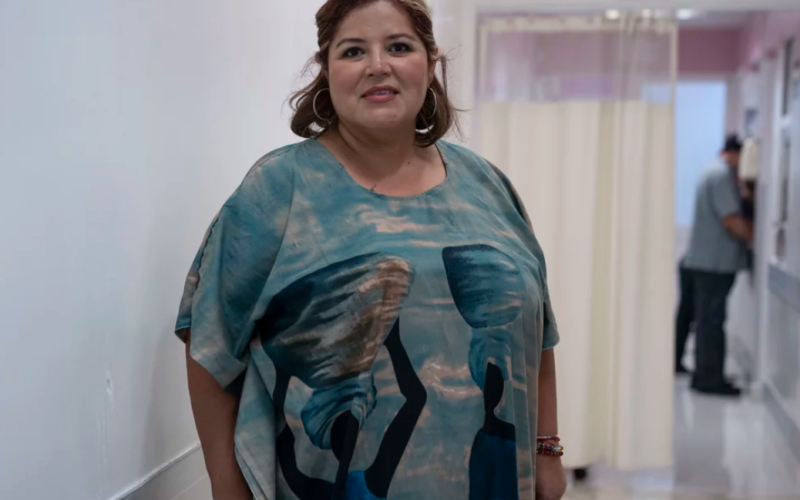Just across the border, in Mexico, is a clinic that provides abortion services to U.S. citizens in complete secrecy, More Americans have been visiting Luisa Garca’s clinic in Tijuana, Mexico, in the months after Roe v. Wade was overturned, a development that has been both sudden and stunning.
Just beyond the San Ysidro border crossing between San Diego and Tijuana, Garca directs Profem Tijuana, where women can obtain abortions.
In May, 25% of the clinic’s patients were Americans. Halfway there by July.
Since Profem does not require patients to produce confirmation of residency, these are only estimates. However, since the leaked Supreme Court draught judgment in May suggested the court might overturn Roe, anecdotal evidence suggests that more people are turning to Mexico for services.
Patients from the United States “don’t tell us the truth” because “they worry that we are going to refuse them service once they tell us that they’re from the U.S.,” according to Garca. People that look like them, speak exclusively English and have fair skin and light eyes give their origins away.
According to Garca, abortion services at Profem are available to people of all nationalities. The clinic is planning to extend its services in Tijuana so that it can offer surgical abortions in addition to the current pharmaceutical option. The search is on for a new medical facility by Profem.
Garcia thinks Tijuana has become popular because of its low prices, relative anonymity, and accessibility.
Abortion procedures at Profem can cost anything from $200 to $400, and they are performed up to 12 weeks into a pregnancy. According to the Texas Equal Access Fund, the average out-of-pocket cost for an abortion in the United States during these gestational ages is between $600 and $1,000.
While traveling to Tijuana for an abortion may save money, doing so can be complicated by a number of issues. One American patient had more trouble with the logistics of getting to and from the hospital in Mexico (such as arranging child care and overcoming the language barrier) than with the actual medical treatment itself, as recalled by Garcia.
“We aim to make the process as humane as possible at our clinic by not labeling, inquiring, or questioning,” Garca explains. “It’s already a tough call.”
This anecdotal trend occurs at a time of heightened privacy concerns, as some states in the United States that have banned abortions have enacted “bounty hunter” laws that incentivize citizens to report those who seek an abortion and privacy experts warn that information gleaned from period-tracking apps could be used to punish those who are seeking or considering abortion.
Although abortion was made legal in some states in Mexico in 2021, it is still illegal in others. Baja California, which includes Tijuana, is the only Mexican border state where abortions are legal, making it an attractive destination for U.S. citizens seeking to travel into Mexico.
Some U.S. courts are still trying to decide whether or not abortions will be legalized nationally. At now, abortion is virtually illegal in at least 14 states. Last week, states including Tennessee, Idaho, and Texas passed even stricter prohibitions. And according to Garcia, the clinic gets a lot of patients from Texas, despite the fact that there are no longer any abortion clinics in that state.
Garcia thinks it’s important and necessary to keep the clinic in Tijuana under wraps.
“We need to be covert because neighbors will have something to say, pro-life groups will protest, or patients might even feel uncomfortable when they arrive,” Garca explains.
With any luck, the clinic won’t have to operate in the shadows indefinitely. It is Garcia’s hope that abortions in that region will eventually be treated as routine. To get the word out until then, the clinic will rely on patient referrals and be open to anyone in need.









